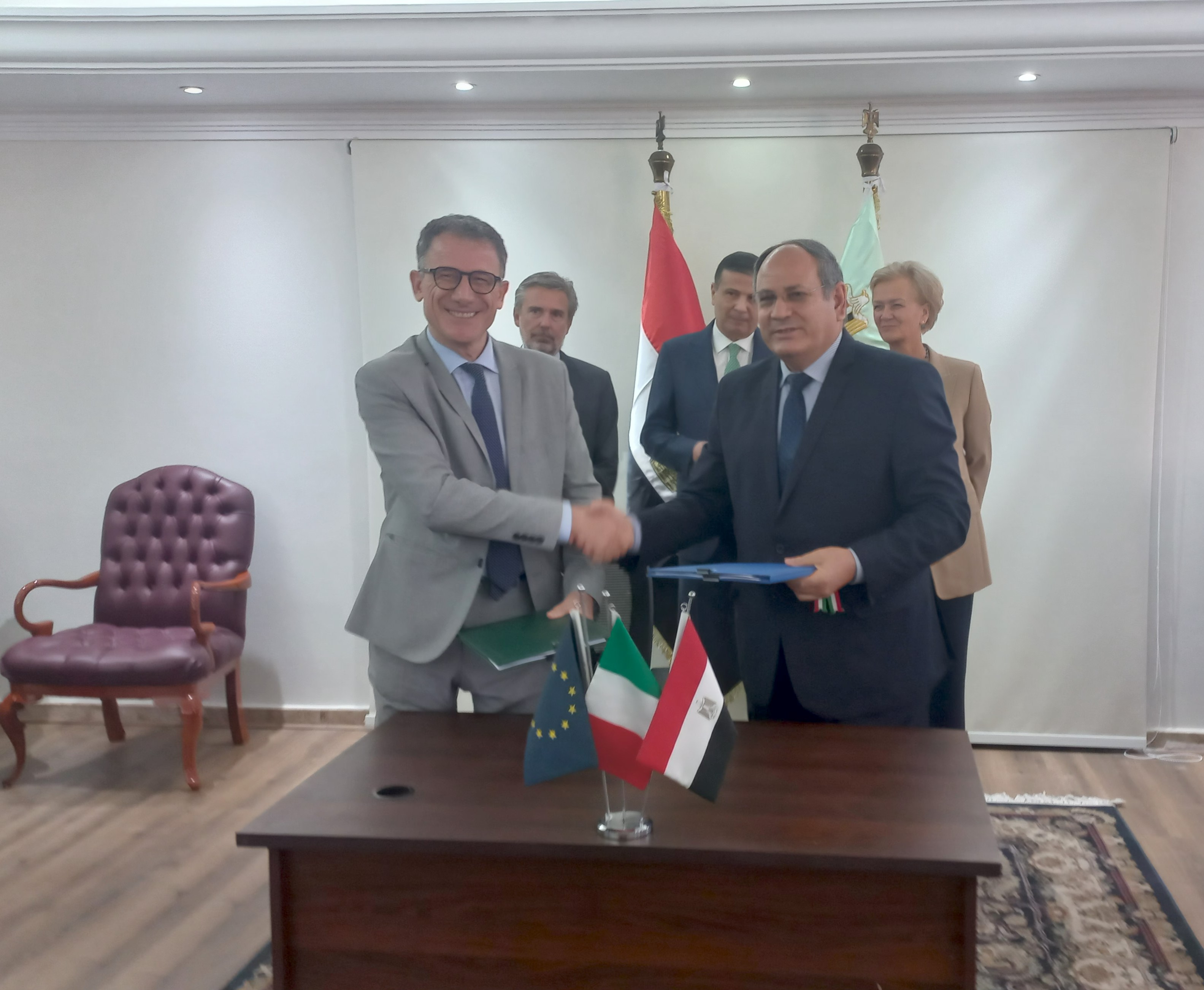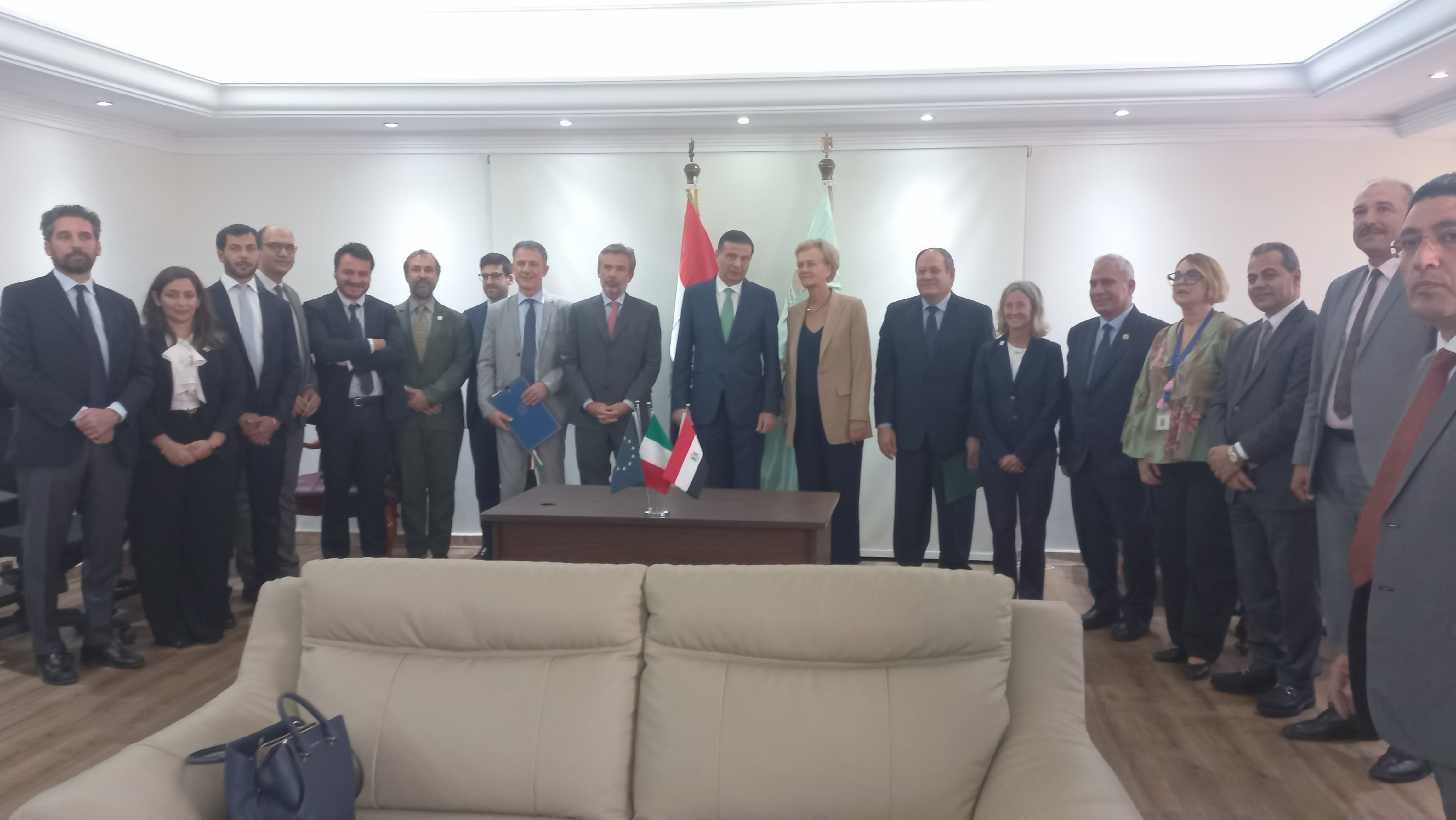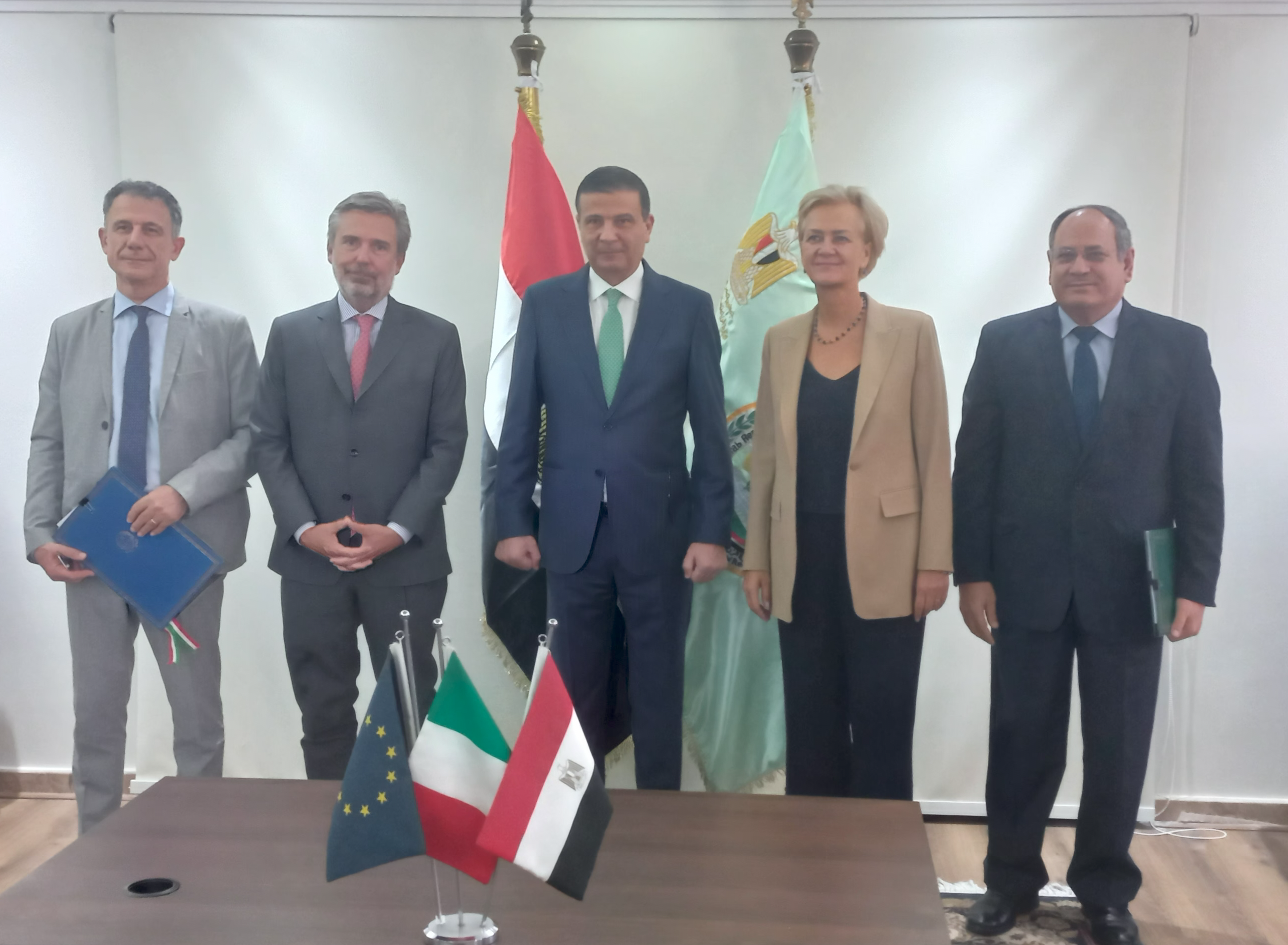The Italian Agency for Development Cooperation in Egypt (AICS Cairo), represented by its Director Mr. Tiberio Chiari, signed today a Memorandum of Understanding (MoU) with Dr. Adel Abd Azim, President of the Agricultural Research Center (ARC), to support the modernization of wheat sector infrastructure under the framework of the EU-KAFI Programme. The programme is funded by the European Union and implemented by AICS.
The MoU was signed in the office of H.E. Mr. Alaa Farouk, Minister of Agriculture and Land Reclamation, in the presence of H.E. Mrs. Angelina Eichhorst, EU Ambassador; H.E. Mr. Michele Quaroni, Italian Ambassador. The agreement outlines the roles and responsibilities of both AICS and ARC to enhance cereal crop production and contribute to strengthening Egypt’s food security.
As part of the agreement, AICS Cairo will support the improvement of key agricultural facilities, including the wheat quality lab and breeding centers in Sakha, as well as several seed processing units. The initiative also aims to modernize government-owned farming equipment to help boost productivity and support small and medium-sized farmers across Egypt.
The Agricultural Research Center (ARC) will play a central role in putting this plan into action. ARC will receive and install the new equipment, supervise upgrades and construction work, and ensure that the modern tools and facilities are used effectively to benefit farmers on the ground.
The agreement extends support to the Central Administration of Seed Testing & Certification (CASC) of the Ministry of Agriculture and Land Reclamation. This includes upgrading the Central Laboratory for Seed Testing and the Central Laboratory for Varietal Registration in Cairo, as well as the Seed Testing and Varietal Registration Laboratories in Sakha.
H.E. Mr. Alaa Farouk, Minister of Agriculture and Land Reclamation, emphasized: “The vital role of the European Union in supporting the development of agricultural mechanization and promoting the use of certified seeds and improved varieties, considering them key elements for increasing productivity and strengthening the resilience of small and medium-scale farmers. This cooperation opens broad horizons for Egyptian farmers to boost their productivity and improve their income, while also enhancing Egypt’s position as a trusted partner in regional and international food security.”
H.E. Mrs. Angelina Eichhorst, European Union Ambassador to Egypt, noted: “EU plays a pivotal role in supporting agricultural and rural development in Egypt through more than 15 projects, including the KAFI programme implemented in collaboration with the Italian Cooperation. As a strategic partner, the EU is committed to supporting Egypt in its efforts to ensure sustainable food systems and the availability of high-quality food for all.“
H.E. Mr. Michele Quaroni, Italian Ambassador to Egypt, added: “Italy remains firmly committed to strengthening its partnership with Egypt in the field of agriculture and rural development. In line with the Mattei Plan launched by the Italian Government, we aim to support the Egyptian Government in securing inclusive growth and ensuring food security by sharing knowledge, investing in innovation, and promoting sustainable agricultural practices”
Dr. Tiberio Chiari, Director of AICS Cairo, stated: “This MoU marks an important milestone in the continuous cooperation between AICS and our strategic partner ARC, to develop Egypt’s wheat sector infrastructure, by providing ARC with new agricultural machines and upscaling the breeding laboratories and seeds processing plants.”
Funded by the European Union, the EU-KAFI Programme supports the production of cereal crops in Egypt. Its comprehensive approach includes upgrading vital infrastructure, enhancing certified seed production, training farmers on Good Agricultural Practices, and modernizing agricultural machinery. The programme also addresses post-harvest loss through the construction of vertical silos, expansion of ICT-based wheat tracking systems, and the development of a national grain loss reduction strategy through stakeholder consultation.


